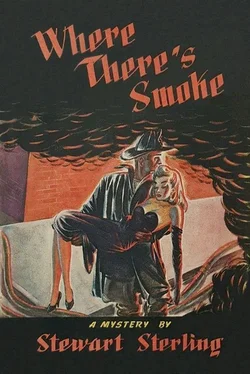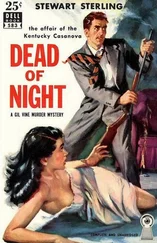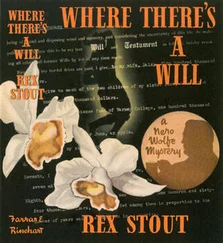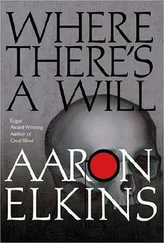Stewart Sterling
Where There’s Smoke
To ROGERS TERRILL
who knew the marshal when—
Chapter One
Cooked to a Cinder
The red sedan rocketed up Broadway at a screaming seventy with the siren wide open; for one not hardened to that banshee howl it would have been difficult to catch, beneath it, the hoarse intonation of the panel speaker:
“Second alarm — Second! Brockhurst Theater — Forty-fifth — Eighth and Broadway! Engine Twelve. Engine Twenty-nine. Hose Thirty-one. Hose Thirty-four. Ladder Twenty. Rescue Five. At four fourteen pee-em, authority Bureau Fire Alarm Telegraph. Double-you Enn Wye Eff.”
Ben Pedley caught it and cursed with feeling. A blaze in the crowded theater district was bad medicine any time. But with the mercury down in the thermometer’s socks and a half-gale sweeping in from the Hudson, it was enough to give a man the smoke-eater’s chills.
An expression of grim calculation hardened his harness-leather features; a line of concentration sharpened between the gray eyes as he shot the sedan between a stalled truck and a braking bus. The possibilities at the Brockhurst were numerous and unpleasant.
Hydrants might be so iced up the hose companies would waste precious minutes waiting for the “coffee wagon” to thaw the outlets. There had been an application from the gas company for repairs to the main, on Forty-fifth; if the street had been torn up, the rigs would be delayed getting into the block. Standpipes would probably be frozen solid. The emergency exits would most likely be blocked with drifts so it would take time to get them open.
There’d be 40 or 50 men and half a dozen pieces of apparatus on the job by now — the pumper, hose trucks, hook-and-ladder, and chemical of the four companies to answer the first alarm. The insurance patrol would be there — and the battalion chief’s car and the district police cruiser. But some of the apparatus that was supposed to answer the second alarm would probably be delayed; no driver could get up to speed on these sleet-greased avenues. Pedley bore down on the gas.
If this wind kept up— He shook his head silently.
Up at the Bureau of Fire Alarm Telegraph in Central Park anxious men would be waiting by the flasher for the call from the deputy chief to send out the third alarm. The spreading ripple of gong-taps would bring in more pumpers and additional hose companies from an ever-widening area. This would be a hell of an evening for the Borough Simultaneous!
The sedan slued into Forty-fifth with tires shrieking, bounced over canvas tentacles radiating from an iron octopus, skidded on ice made by leaky couplings, slammed its bumper against the tail of Hose Eighteen. Pedley piled out into a bilious swirl surging from the theater alley.
“What you got, Charley?”
A battalion chief, bulky in wet rubber, blinked smoke-inflamed eyes. “Smoker, Marshal. Rear wall somewhere. Stinker to ventilate. Boys are having to take it in three-minute relays.”
“Everybody out?”
“Wasn’t any audience.” The battalion chief shoved his white helmet back off a smudged forehead. “Just rehearsing for some broadcast.”
Pedley sized up the shivering musicians under the marquee. Some had retrieved their instruments; only a few had salvaged the cases. One guarded a bull fiddle wrapped in his overcoat against the spray. All were intent on a chubby individual struggling with a patrolman at the alley entrance.
“Guy trying to put on the hero act” — the chief made a hand signal to the engineer of a pumper across the street — “claims one of the singers is still inside.”
The stubby man heard; whirled. “One of the singers! You dumb dilly!” He looked like an angry gargoyle carved out of pink glass. “Leila’s in there! Leila Lownes!” He wrenched an arm free from his belted camel’s-hair, lurched back under the policeman’s collar-grip. “She ran back to the dressing-room to get her brother! She’ll burn to death while you stand here and yawp. Lemme in there!”
Pedley eyed him bleakly. “Keep your pants on. You’d only make one more to drag out. We’ll get your friends.”
“Get Leila!” The gargoyle glowered. “Nobody gives a damn whether you get Ned or not. The creep probably tried to burn down the joint, anyway.”
“Who’re you to say so?” Pedley moved toward him.
“Ah—!” The battler smeared sweat off his face. “Don’t mind me. I’m Terry Ross. Press relations for Leila. I’m off my nut, with her still in there. I know from nothing how the fire started.”
“Just letting off steam?” Pedley shed his raglan, tossed it in the sedan.
“Yuh. That’s all.”
Pedley reached for his smoke mask. “Then you better sit on his safety valve, officer. I wouldn’t want him to blow before I get back.” He splashed into the alley past laddermen lugging a smoke-ejector.
“How is she, inside?”
“She’s a ripe one, Marshal. Tough to get a draft through. Ice-sheathing on the roof.”
Pedley put on the mask, edged through the stage door. The switches had been pulled; the only light was a vague blur from electric lanterns moving about in the wings.
He followed a length of canvas snaking in from the alley, up the narrow iron staircase. His first job was to find out where the fire had started. Knowing that much, he might be able to take it from there. Lacking that, he’d be as much up against it as a homicide detective who couldn’t find the body.
Sometimes the boys were able to settle that primary problem for him, by getting a stream on a blaze before Pedley reached the spot. But they evidently hadn’t been able to do that here, even though they’d rushed a two-inch line in fast, coupling up direct from the eight-hundred-gallon reserve tank on the pumper. There was no crackle of flames, no hiss of steam, up ahead. That meant the pipeman hadn’t found a target to shoot at — there wasn’t any sense in throwing water at smoke.
Fumes thickened as he climbed. The beam of his flashlight barely penetrated an arm’s length. In here, the pulse of the pumpers and the wail of arriving apparatus were faint and far away.
A misshapen silhouette loomed up out of the murk at the top of the stairs — a giant with incredible shoulders. The figure lurched against him, bunted him across the slippery steps. Pedley grabbed at the pipe banister. The jolt knocked his smoke mask off; it clattered below in the darkness.
He swung his flashlight up. The beam glinted on the front-plate of a hoseman’s helmet; under it, to one side of the hoseman’s mask, a white face with the slack, open mouth of a smoke victim. The owner of the face sagged limply over rubber-coated shoulders — a middle-aged man with white hair and thin, sharp features. The brother. Then the girl must still be up here.
The rescuer mumbled beneath his mask, clumped on down the stairs.
Pedley would have to follow him; nobody could last five minutes breathing these fumes. It was either go down and hunt for his mask or go back to the apparatus for a spare. He’d better get going while he could navigate, too; maybe the haze wasn’t entirely due to smoke. He could leave the girl to the rescue squad. They’d get to her in time.
He dropped to his knees, crawled ahead, along the corridor.
Smoke banking down from above wasn’t as dense down here close to the floor. He could make out a sullen incandescence beneath a doorsill farther down the corridor. He crawled along, one hand following the hose line, until his fingers touched cold metal.
That rescuer had been the nozzleman, of course. He’d be back up in a minute, but a minute might be too long.
Pedley’s fingers closed around the lever, pulled the handle back slowly so the brass tip wouldn’t buck with the back pressure and knock out a fistful of teeth. Water speared out ahead with a roar. The stream had no more than a hundred pounds of pressure behind it. He could handle it. Easier than he could keep a grip on his senses, perhaps.
Читать дальше











